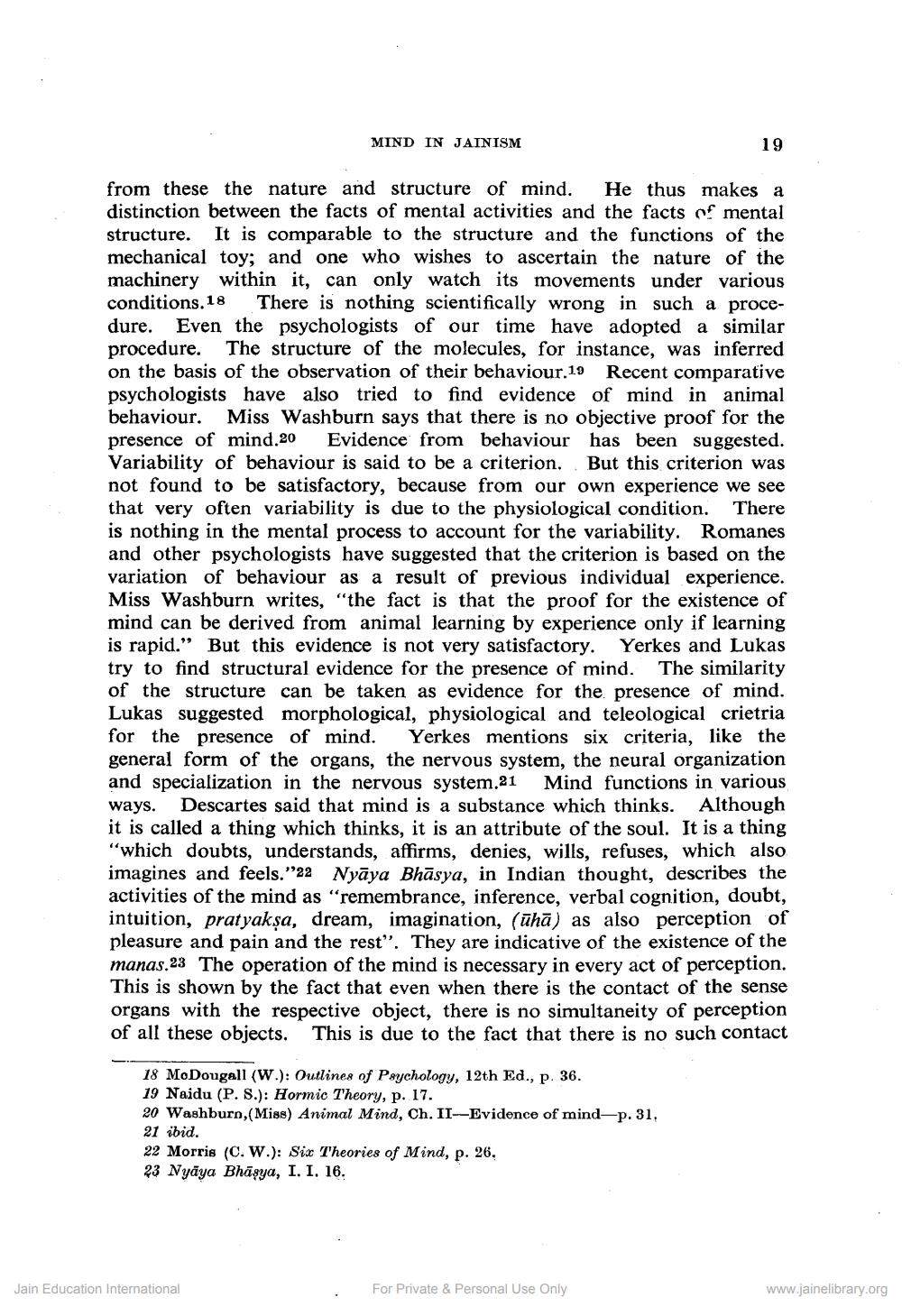________________
MIND IN JAINISM
19
from these the nature and structure of mind. He thus makes a distinction between the facts of mental activities and the facts of mental structure. It is comparable to the structure and the functions of the mechanical toy; and one who wishes to ascertain the nature of the machinery within it, can only watch its movements under various conditions.18 There is nothing scientifically wrong in such a procedure. Even the psychologists of our time have adopted a similar procedure. The structure of the molecules, for instance, was inferred on the basis of the observation of their behaviour.19 Recent comparative psychologists have also tried to find evidence of mind in animal behaviour. Miss Washburn says that there is no objective proof for the presence of mind.20 Evidence from behaviour has been suggested. Variability of behaviour is said to be a criterion. But this criterion was not found to be satisfactory, because from our own experience we see that very often variability is due to the physiological condition. There is nothing in the mental process to account for the variability. Romanes and other psychologists have suggested that the criterion is based on the variation of behaviour as a result of previous individual experience. Miss Washburn writes, "the fact is that the proof for the existence of mind can be derived from animal learning by experience only if learning is rapid." But this evidence is not very satisfactory. Yerkes and Lukas try to find structural evidence for the presence of mind. The similarity of the structure can be taken as evidence for the presence of mind. Lukas suggested morphological, physiological and teleological crietria for the presence of mind. Yerkes mentions six criteria, like the general form of the organs, the nervous system, the neural organization and specialization in the nervous system.21 Mind functions in various ways. Descartes said that mind is a substance which thinks. Although it is called a thing which thinks, it is an attribute of the soul. It is a thing "which doubts, understands, affirms, denies, wills, refuses, which also imagines and feels."22 Nyāya Bhāsya, in Indian thought, describes the activities of the mind as "remembrance, inference, verbal cognition, doubt, intuition, pratyaksa, dream, imagination, (ūhā) as also perception of pleasure and pain and the rest". They are indicative of the existence of the manas.23 The operation of the mind is necessary in every act of perception. This is shown by the fact that even when there is the contact of the sense organs with the respective object, there is no simultaneity of perception of all these objects. This is due to the fact that there is no such contact
18 MoDougall (W.): Outlines of Psychology, 12th Ed., p. 36. 19 Naidu (P. S.): Hormic Theory, p. 17. 20 Washburn,(Miss) Animal Mind, Ch. II--Evidence of mind-p. 31, 21 ibid. 22 Morris (C. W.): Six Theories of Mind, p. 26, 23 Nyāya Bhāşya, I. I. 16.
Jain Education International
For Private & Personal Use Only
www.jainelibrary.org




